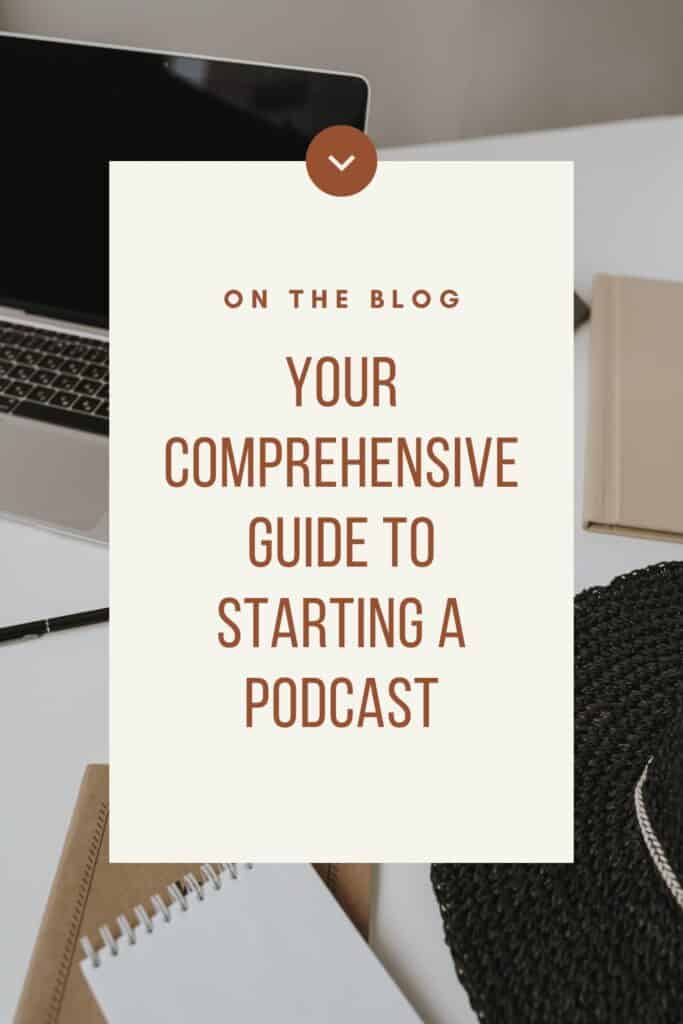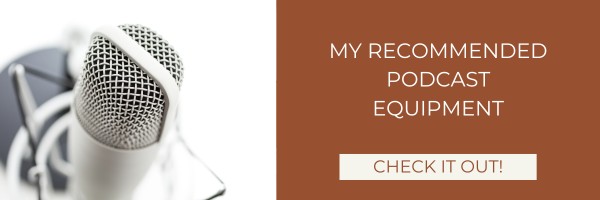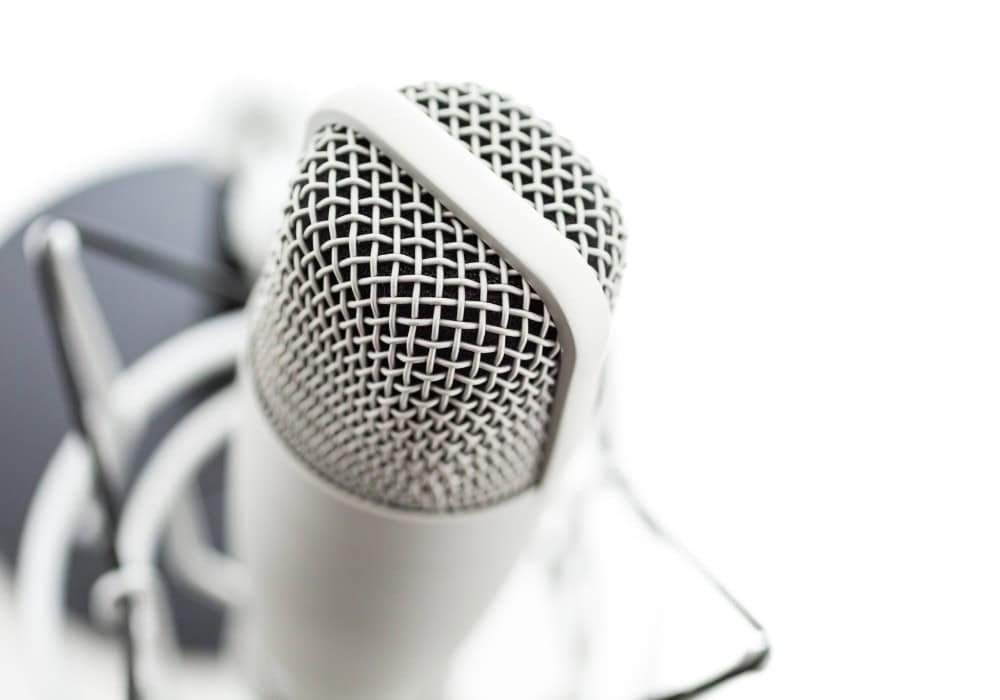Podcasting has emerged as one of the most dynamic resources for sharing ideas, telling stories, marketing your business, and connecting with audiences around the world. Our audiences consume content in so many ways, and having a podcast is a great addition to your arsenal of marketing tools. If you’ve ever considered starting a podcast, now is the perfect time. This is your comprehensive guide to starting a podcast. I will walk you through the essential steps, from understanding the benefits of podcasting, such as networking and improving your SEO, to gathering the right equipment.
Networking and Growing Your Audience
Podcasting can significantly expand your professional network and grow your audience. Here’s how:
Networking Benefits:
-
- Guest Appearances: Inviting guests from your industry can help you build relationships and reach their audience.
-
- Collaborations: Collaborate with other podcasters to cross-promote episodes and share audiences.
-
- Industry Events: Attend podcasting conferences and meetups to connect with other podcasters and industry professionals.
Audience Growth Strategies:
-
- Consistency: Release episodes on a regular schedule to build and retain your audience.
-
- Engagement: Interact with your listeners on social media, and respond to their feedback.
-
- Promotions: Utilize social media, email newsletters, and paid ads to promote your podcast.
-
- SEO Optimization: Optimize your podcast’s title, description, and episode titles with relevant keywords to improve discoverability.
Improving Your SEO With Podcasting
Podcasting can also enhance your SEO efforts, driving more traffic to your website and increasing your online presence.
How Podcasting Improves SEO:
-
- Backlinks: Guest appearances and collaborations can lead to backlinks from other websites, improving your domain authority.
-
- Content Repurposing: Transcribe your episodes, and publish the transcripts on your blog. This creates valuable written content that search engines can index.
-
- Keywords: Use SEO-friendly keywords in your podcast titles, descriptions, and show notes to increase visibility.
-
- Engagement Metrics: High engagement with your podcast (such as downloads, listens, and shares) can signal to search engines that your content is valuable.
- Engagement Metrics: High engagement with your podcast (such as downloads, listens, and shares) can signal to search engines that your content is valuable.
Steps to Optimize Your Podcast for SEO:
-
- Keyword Research: Identify relevant keywords and incorporate them into your podcast titles, descriptions, and show notes.
-
- Show Notes: Write detailed show notes for each episode, including summaries, timestamps, and links to resources mentioned in the episode.
-
- Transcriptions: Provide full transcriptions of your episodes to enhance accessibility and SEO.
-
- Embed Players: Embed podcast players on your website to keep listeners on your site longer, which can positively impact your SEO.

Getting Started: The Essential Equipment
Before you hit record, it’s crucial to have the right equipment. While it’s possible to start with just your smartphone, investing in some quality gear will significantly enhance the production value of your podcast.
1. Microphone
A good microphone is the cornerstone of any podcast setup. USB microphones like the Blue Yeti or the Audio-Technica ATR2100x are excellent for beginners due to their ease of use and sound quality.
2. Headphones
Headphones are essential for monitoring your recordings and ensuring there are no issues with the audio. Using headphones that plug into your microphone are more effective than bluetooth. Closed-back headphones are a popular choice among podcasters.
3. Pop Filter
A pop filter is a simple and affordable tool that reduces the harshness of plosive sounds (like “p” and ‘b”). This helps in delivering a cleaner audio recording.
4. Recording Software
Software like Audacity (free), Garage Band for Apple users (free), Zoom for interviews (paid), or Adobe Audition (paid) will allow you to record, edit, and polish your podcast episodes. These programs offer a range of tools to enhance your audio quality and add effects.
5. Computer
A reliable computer with sufficient processing power is essential for recording and editing your podcast. Whether you use a PC or a Mac, ensure it meets the requirements of your recording software.
Choosing a Hosting Company
Once you’ve recorded your episodes, you’ll need a place to host your podcast files. A podcast hosting company stores your audio files and generates an RSS feed that you submit to podcast directories like Apple Podcasts, Spotify, and Google Podcasts.
Popular Podcast Hosting Platforms:
-
- Buzzsprout: Known for its user-friendly interface and excellent customer support. Buzzsprout offers detailed analytics and integration with many podcast directories.
-
- Libsyn: One of the oldest and most reliable podcast hosting platforms. Libsyn offers a range of plans tailored to different needs.
-
- Podbean: Provides unlimited storage and bandwidth, making it a great choice for podcasts expecting large numbers of downloads.
-
- Anchor: A free platform by Spotify that offers a simple, all-in-one solution for recording, hosting, and distributing your podcast.
-
- Kajabi: This a digital course platform that also hosts podcasts; however, it doesn’t have as many analytics or features.
When choosing a hosting platform, consider factors such as pricing, storage limits, analytics, and ease of use.
Creating a Database to Track Your Podcast
Keeping track of your episodes, guests, topics, and publishing schedule is vital for maintaining an organized podcast. Creating a database can help you manage this information efficiently.
Tools for Creating a Podcast Database:
-
- Google Sheets or Excel: These spreadsheet tools are excellent for creating a basic database to track your episodes, guests, and release dates.
-
- Airtable: Combines the simplicity of a spreadsheet with the power of a database. Airtable allows you to create custom fields, link records, and view your data in various formats.
-
- Trello or Asana: Project management tools that can help you track your podcast’s production process, from idea generation to episode release.
Key Elements to Track:
-
- Episode Title: A working title for each episode.
-
- Episode Number: The number of the episode.
-
- Publication Date: When the episode will be released.
-
- Guest Information: Names, websites, socials, contact details, and any notes about your guests.
-
- Episode Status: Stages such as ready to schedule, published, promoted, etc.
Starting a podcast involves several steps, from acquiring the right equipment to choosing a hosting company and creating a tracking database. However, the benefits of podcasting, such as expanding your network and improving your SEO, make it a worthwhile endeavor. By following this guide and committing to producing high-quality content, you’ll be well on your way to launching a successful podcast. Happy podcasting!













